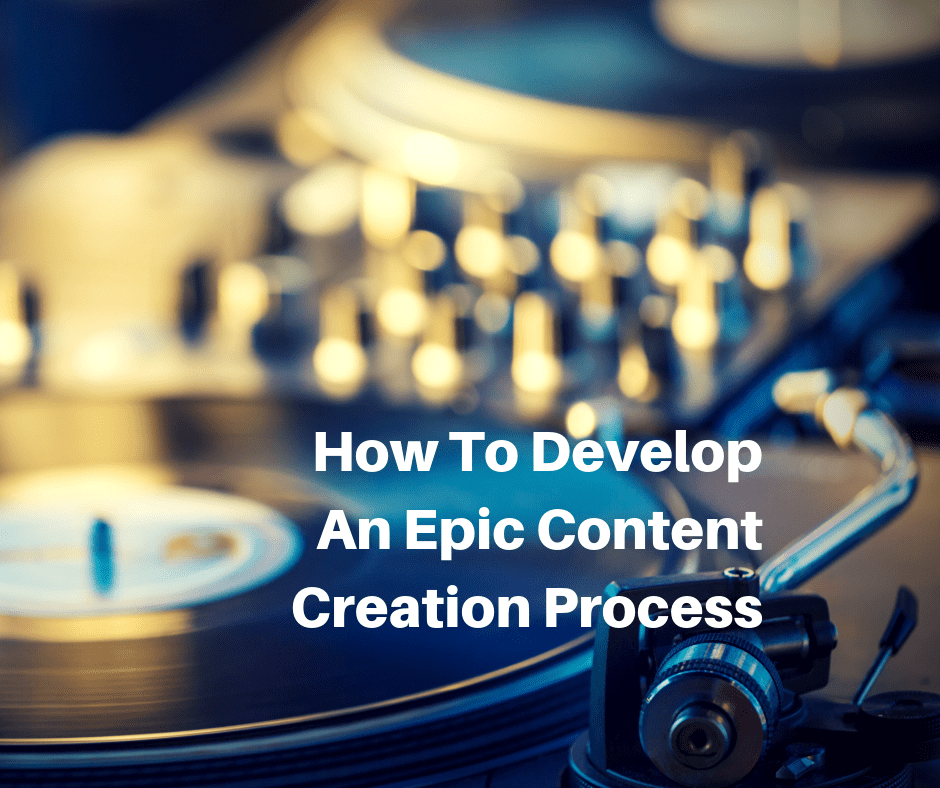
At our weekly London Bloggers MeetUp, I keep getting asked how I write a blog post, and I never have an answer.
I can’t bullshit my answer anymore.
I realized that even after all this time I don’t have a system or process for writing a blog post.
The same goes for building a podcast episode.
I have got together with my freelancing coworking buddies Cat and Trevor to sort this out on our the OuiShare Radio Write Club podcast here.
Stop Reading And Pondering
Even after all the productivity books and courses, I have consumed, there is still a gaping hole in my processes.
For podcasts, I always know in my gut where I want to go, and I have the gift of the gab; so I neglect to prepare much.
Notice I said neglect, not “I’m so good I don’t need to prepare.”
And this is one of the things that eludes me in getting more done.
The lack of a defined process in this area of my life makes each new blog post or podcast a new and exciting surprise, even to me.
Email Newsletter Process
For email newsletters, I have a process. I adore curated newsletters, and therefore, I read a lot; tag it in Pocket App, send it by magic to Publicate.it, and then when it is time to send one, I pop in Publicate.it hit a tag and then pick an article, then copy and paste the code to MailChimp, send a test, and then hit publish.
When I am on form, I make a few editions in a row, and the themes are constant.
I am curating a supportive and helpful newsletter; not a breaking news email so I can work ahead of myself.
The time-consuming part is writing the words each week, and often I leave this until the last minute, which takes longer and ends up as a disjointed reading experience for you, the reader.
Josh Bernoff’s ‘Iron Imperative’
Something that got branded into the side of my head last year was the ‘Iron Imperative’ from Josh’s book, “Writing without bullshit;” which is that the readers time is more important than your own.
In turn, this made me think about what I’m motivated to seek out.
In my world, there are hardly any coworking spaces where I read their blogs.
I keep up with people, but I don’t go out of my way to seek out their words.
The “Iron Imperative” stopped me for a bit, and not in the right way.
But this does not mean I should ignore it.
I started to think about what I write, and is it useful?
The Coworking
Most coworking blogs occur as recycled productivity tips, and even they are not done well.
There is an “I hope this works” thread like they are trying to copy James Clear blogs without the experience and insight.
There are people who write consistently and interestingly about coworking life, like Cat Johnson and Laetitia Vitaud; but they are writers, not spaces.
The only coworking space where I look forward to what they are doing is the Impact Hub Birmingham; miles away from me, but their work makes a difference, and as someone who helps run a space, I am inspired by what they do.
I’m even a little bit jealous!
We podcasted with Imandeep Kaur from Impact Hub Birmingham at the beginning of their Radical Childcare project in 2017 – here on OuiShare Radio
Reading Non-Stop To Find Out What I Think
There is a list of what I read here on feedly.com, and I pick up articles from Pocket, Medium, Anders Pink.
I learn every day from the communities I am part of:
- Content Marketing Academy
- London Bloggers Meet Up
- CopyBlogger Authority
- Fizzle
- @Work Hubs Coworking Space
- OuiShare
Working Out What To Write
The truth is, I wasn’t sure my words were any use, which leads to doubt, and fear, and all those ugly things that happen when you write and post content.
Prompted into action by the ‘choose a topic course’ on Fizzle.com, I had to ask who would come to my blog and read this?
So I looked at who reads my shit, and most people who talk to me about my work are people in coworking spaces, who are either freelancers, run a micro-business, or identify as self-employed as part of a small team.
I know that sounds like everyone in a coworking space, but it is not.
So I had my primary audience.
What Makes Me Read Stuff?
The content I hold out for weekly is nudging me, reminding me, or solving an issue as I read along. Best of all it makes me think.
A great example of this is a Fizzle post; I am a fizzle member and the blogs and podcast act as a commentary on the content in the community.
Other examples would be the
Blog Tyrant, and ironically, the Process Street blog.
This is all right on point for me.
Right now I am working on writing and podcasting more with less work.
I am actively building a deliberate practice and looking to get even better results.
So, Bernie How Do You Write a Blog?
Not how you think.
After I had worked out who will read this stuff, I then discovered the three topics in the ‘choose your topic course‘ on Fizzle online community had revealed my sweet spot.
We talk about the choose your topic course on the @Work Hubs podcast here
So, I narrowed my focus to coworking, podcasting, and productivity.
I started just to write. not the best way I could do it, but it at least I started!
I ended up with acres of Google docs that I lost track of.
Sure, it was a healthy thing, and joy to write non-stop, but I did not get any articles to publish.
You have to know where you are going and map out a few episodes and blogs, then think about the journey you want people to go with you.
I Did Not Know Where I Was Going
I am involved in the Fizzle community to the extent that I talk about fizzle offline with people at our meetups, who are also members.
Outside of that, I follow the podcast, which points me towards what is happening.
At the end of 2017, I joined an online Fizzle.com mastermind group.
My purpose was to be with a group of people who I’d ONLY talk to about making my engagingpeople.wpengine.com blog happen.
One of the first questions we all asked was ‘where are you going?’
I knew where I was going in other areas of my work but not with my blog.
So we all quickly involved in “Steph’s 15-minute planner exercise,” where she doubled her email list with an improved lead magnet.
The lead magnet came from asking people like me what mattered and that became the fifteen-minute planner method.
This method then became a week-long goal setting course, the way Steph looked at goals made us question ‘productivity gains vs desire’.
I have a HUGE desire to make my website work for me in 2018, and I am finally prepared to go through the struggle, mess and humiliation to build a blog that matters.
Not Just Another Goals Course
A few of us here @Work Hubs embraced the planner and Steph’s Fizzle Goals course.
At this stage of the game, I think that following a course with a group of people close to you enables you
As I have dared to think about this in more detail, I’ve worked out that I need to batch and design my process for researching, writing, and posting a blog.
I looking for how to glean more in-depth focus and course correction, so this is useful stuff.
That reminded me, there are 50 blog process templates here on Process Street.
For the first time since I was five years old, I know what direction I am heading.
The next step for me is to get even more precise at keeping on track with both my current 12-week plan and long-term goals.
If this post spoke to you and you’d like to learn how to develop an epic content creation process come and join in a weekly Deep Work Meetup @Work Hubs:
Photo by Dalibor Bosnjakovic on Unsplash
